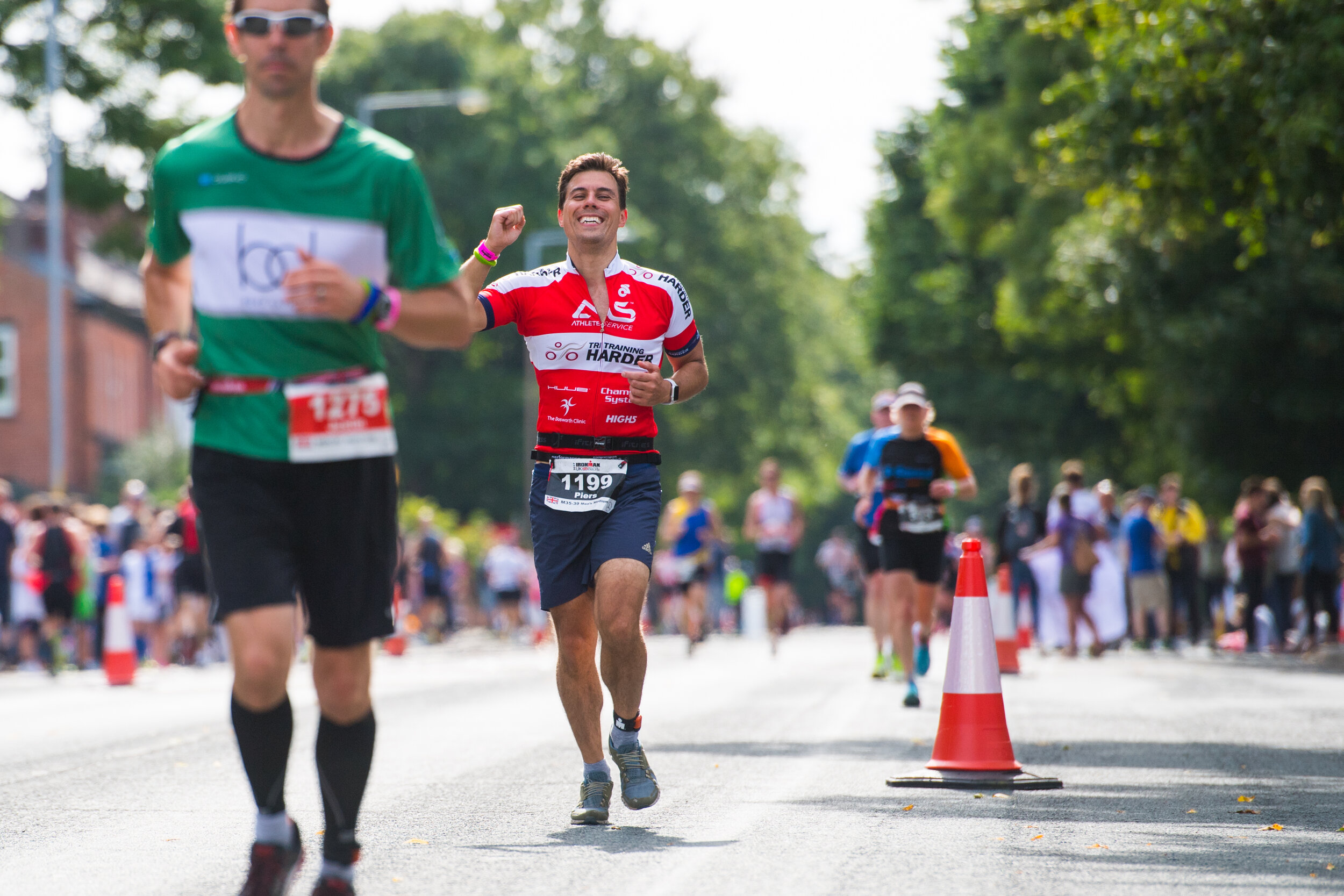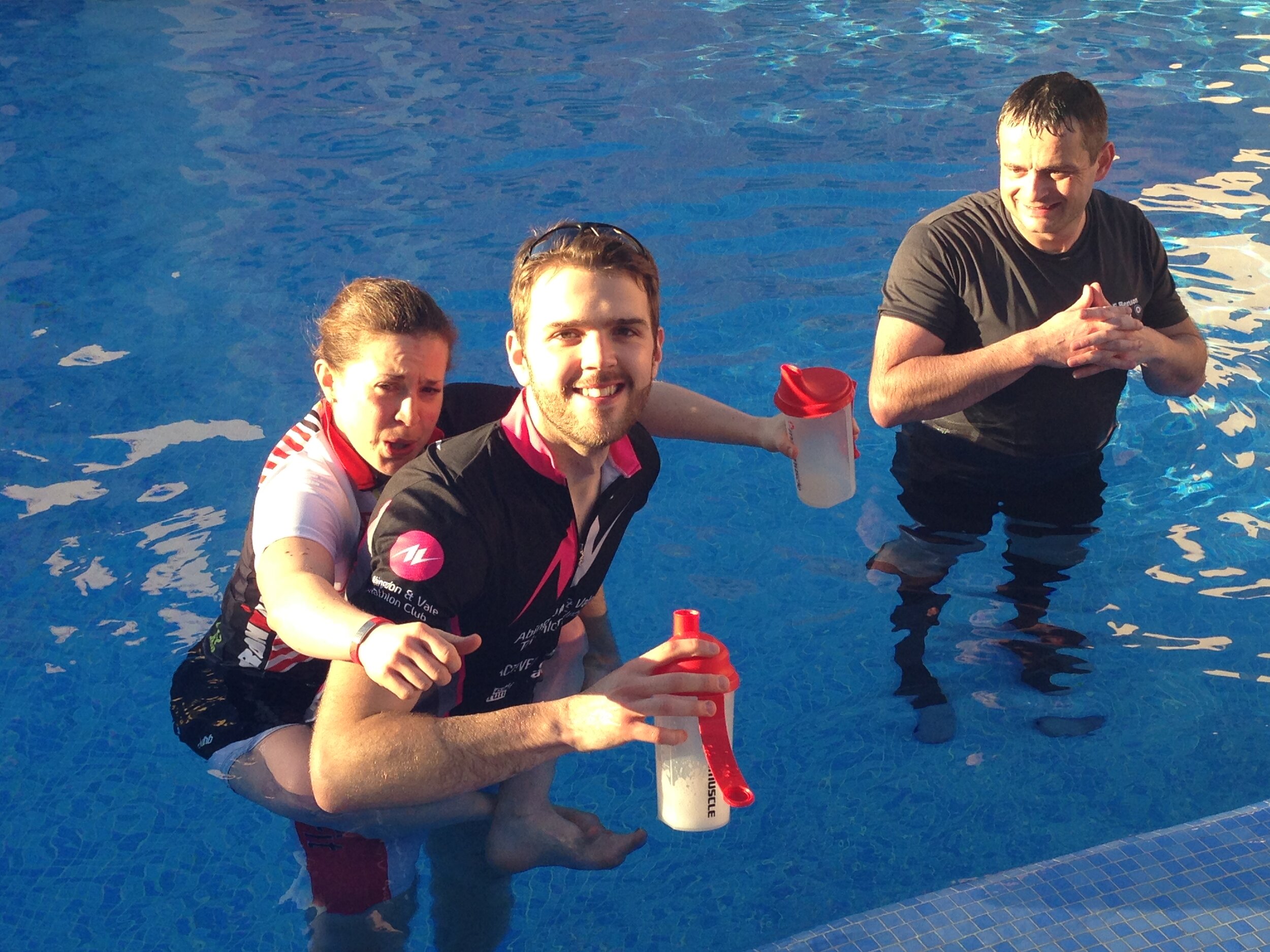How to plan your race nutrition
There will have been hours in the pool, on the bike and in your running trainers leading up to this moment - race day. Getting nutrition right in races can be make or break; it needs to be planned and practiced. In this blog I discuss nutritional needs whilst racing, however there is no one set way to do this Everyone has their favourite tasting gel or energy drink, some people get hungry and want solid food others want to stick to liquids throughout. This blog is to help you work out your requirements and what works for you.
Preparation may need to start days in advance depending on the length of the race. Longer races should be carb loaded, whereas there is no need for shorter races such as sprint. For sprint triathlons just ensure you are starting with a full glycogen store; have a full plate of carbohydrate with lunch and dinner, plus a couple of carbohydrate based snacks the previous day, then follow the morning guidance below. Depending on your ability to take on nutrition whilst racing and your time to finish you may or may not need to carb load before an Olympic distance. Distances thereafter, carb load. The slightly less clear message around the Olympic distance is because the duration of the event is on the cusp of needing a loading programme. An average person can store 500g of glycogen and this will last for about 2 hours depending on intensity of exercise. Therefore faster athletes or athletes that expect to finish within 3 hours but can take on 90g of carbohydrate an hour during the bike and run do not need to carb load. For athletes that get gut distress at 90g an hour or can not have fructose, it is advisable to carb load for an Olympic distance triathlon.
Carb loading triggers an enzyme enabling larger amounts of glycogen to be stored that can then be called upon during the race. If you are going to carb load you have to get it right, otherwise you will just add fat which you will have to lug around with you. The guidance is 7 - 10g of carbohydrate per kilogram of bodyweight a day for 3 days prior with minimal activity (very highly trained athletes can do 1 day at 10 - 12g). To not add additional calories keep protein adequate and fat low. So for someone weighing 65kg and carb loading at 8g this is 520g of carbohydrate per day. That’s 765g of dry weight pasta, just over 1 ½ bags - but I am not advising you to do it all with just pasta! For those that are prone to gut distress whilst racing keep fibre low, some athletes also find that avoiding fruit is beneficial.
That’s 765g of dry weight pasta, just over 1 ½ bags - but I am not advising you to do it all with just pasta!
Race day is here. Wave times can be early and it is always a balance between getting up early to have time for breakfast to digest and that extra time in bed. Guidance is 1 - 4g of carbohydrate/kgbw 1 -- 4 hours before the race. For early starts I generally recommended that athletes have about 100g of carbohydrates with breakfast containing both glucose and fructose such as oats and banana if athlete’s gut will allow, with a little very low fat protein such as skimmed milk or yogurt. Then to sip an energy drink adding an additional 44g of carbohydrate during preparation and warm up. Caffeine has been found to be beneficial for triathlon so for athletes with stronger guts I recommend a caffeinated energy drink at this point.
For sprint triathlons, it you are starting with a full glycogen store then there is no need to take on carbohydrates during the race for energy. However having some carbohydrates during will help with neuro messaging. For longer races 90g of carbohydrate an hour on the bike and run is optimal. That should be split 60g of glucose and 30g of fructose. This is the maximum that can be transported an hour, without caffeine. With caffeine this can be pushed up to about 110g. However it is important to practice your nutrition during training as not many athletes's guts can cope with this much carbohydrate during intense exercise, caffeine is also a gut irritant. Athletes with IBS may be better avoiding fructose.
For short and mid distance triathlons protein is not necessary during the race. If doing an IRONMAN and if your gut will allow also include protein of up to 10g an hour. In all distances keep fat intake low.
How you achieve the recommendations above is down to personal choice and can be achieved in many different ways. Energy drinks, squash, flat cola, gels, bars, sweets and rice cakes are popular choices. For athletes that are really serious about their times I recommend that they are completely independent, carrying or arranging to pick up their own nutrition along the route where allowed. This reduces the risk of error. Others may prefer to rely on what is provided, especially during the run. If this is the case, ensure that you know what will be available and make your plan around that. Depending on the triathlon distance some athletes like to stick to liquids others like to include some solid food on the bike. If choosing to include solid food go low fibre, low fat and only small amounts at a time. Stop solid food at least 30 minutes before the start of the run.
Hydration is one of the trickiest things to get right as everyone sweats different amounts, losing different amounts of electrolytes. Use your training to understand your fluid requirements. If you take on the right amount of fluid during a training session you should be the same weight at the end as the start. Sweat testing is available which will also measure the electrolytes in your sweat, this will enable you to choose the most suitable electrolyte supplement. General guidance is to start the race with close to clear coloured urine, then drink a litre of fluids per hour with an added electrolyte supplement (energy drinks and gels often include electrolytes).
You cross the finish line; it doesn’t end there. Take on nutritional recovery as soon as possible. 20g (30g post IRONMAN) of protein and 0.8g per kilogram of bodyweight of carbohydrates. A sports recovery drink is probably the most convenient thing to have at this point but a pint of milk and milkshake powder is equally as effective. Remember to take your recovery nutrition with you to the race so that you can have it immediately after. This will help with muscle repair and also whey protein in recovery has been found to curb hunger in the day after an IRONMAN. Thereafter, have a meal containing protein, carbohydrates and vegetables within two hours.
For more information on how to work with Helen, click here.
We’re here to help
Tri Training Harder are one of the leading Triathlon coaching providers in the UK, using our wealth of experience to unite scientific and technological research with already well-established and successful best practices, to create a formula for triathlon and endurance coaching that works.
The result is an honest, dynamic, yet simple new way of constructing an athlete’s training to allow them to reach their potential.
If you’re planning your next season, just starting out in the sport or are looking for extra guidance at the very top end of the field, we are here to help, and our coaches would be delighted to hear from you. You can contact us via the website, and one of the team will be in touch.



